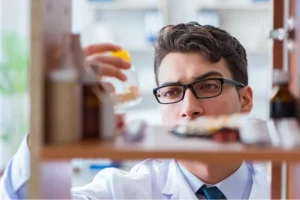
They can reduce the stress response and bring you back to a state of calmness, which is essential for sound decision-making. When you were using drugs and alcohol, you likely spent most of your time seeking, using, or recovering from your substance of choice. And, in turn, you likely put activities you loved one the backburner. Now that you are in recovery, you have more time to do things that matter to you—things that you enjoy. This might mean playing a sport, starting a collection, getting back how to recover from substance abuse into art or music, or hitting the trails.
Treatment and Recovery
Recovery is about more than just Alcoholics Anonymous quitting substances; it’s about building a life that feels fulfilling and sustainable. At Ashwood Recovery, we’re here to help you create that foundation. Whether you need support managing challenges, staying motivated during recovery, or finding the right resources, our relapse prevention therapy can help. Rebuilding your health after addiction is one of the most important steps in recovery.
The Recovery Process

Many people find cognitive behavioral therapy (CBT)7 especially helpful, as it teaches you how to change thought patterns that lead to substance abuse. In combination with a safe environment, you should also ensure that you are not afflicted by relapse triggers. Relapse triggers can be people, places, or things that cause you to crave drugs and alcohol.
- Sometimes, doctors may also prescribe medication that can lessen withdrawal symptoms, prevent cravings, and help make the withdrawal process go more smoothly.
- Withdrawal symptoms can occur early on in the detox phase, and symptoms can range from mildly uncomfortable to life-threatening.
- Many people in recovery will use meditation or mindfulness techniques to help keep them grounded.
- Avoid these triggers when possible, and learn coping strategies to deal with unavoidable ones.
Can addiction be cured?
- Over time, addiction changes brain function, making it harder to control impulses and decision-making.
- Do the benefits of continued use or participation outweigh the costs?
- Being in a close relationship with someone who is actively using alcohol or other substances can be very challenging.
- This might be your therapist, sponsor, or a supportive friend who understands your journey.
- Self-direction means that you are ultimately in charge of deciding what works best for you, taking into account your unique needs and circumstances.
Occasional, brief thoughts of using are normal in early recovery and are different from mental relapse. When people enter a substance abuse program, I often hear them say, “I want to never have to think about using again.” It can be frightening when they discover that they still have occasional cravings. They feel they are doing something wrong and that they have let themselves and their families down. They are sometimes reluctant to even mention thoughts of using because they are so embarrassed by them.

Celebrating Your Progress
- If you’ve chosen to recover from substance use issues, we’ve prepared various methods and tips to assist you in your decision.
- Most people who make their way into recovery have left a lot of pain and suffering in their wake.
- It helps you feel good when you do healthy things like eating or exercising.
- Normally, our brain releases dopamine—the feel-good chemical—when we do healthy things like eating a good meal or laughing with friends.
- If you experience a relapse, we will provide you with an additional 30 days of treatment at no cost to you.
- These guidelines help evaluate a patient’s clinical needs and situation to match them with the right level of care, in the most appropriate available setting.
The literature was reviewed by focusing on the key question of definition and measurement. The question posed by Schwartz-Barcott and Kims (2000) guided the inquiry through the literature to provide an initial direction for this research (2). Recovering individuals are often overwhelmed by the idea of change. As part of their all-or-nothing thinking, they assume that change means they must change everything in their lives. It helps them to know that there is usually only a small percent of their lives that needs to be changed.

Step Three: Assessment And Treatment Planning
Continuing care is vital to a lasting and successful recovery from addiction. Substance addiction is a chronic illness that, much like hypertension or diabetes, requires ongoing maintenance and therapy. It can be managed, and it can be treated, but you need to constantly work at it. Mindfulness-Based Relapse Prevention (MBRP) takes this concept further by combining mindfulness practices with traditional relapse prevention strategies. This structured approach helps you develop awareness of your personal triggers while building skills to steer challenging emotions without turning to substances.


